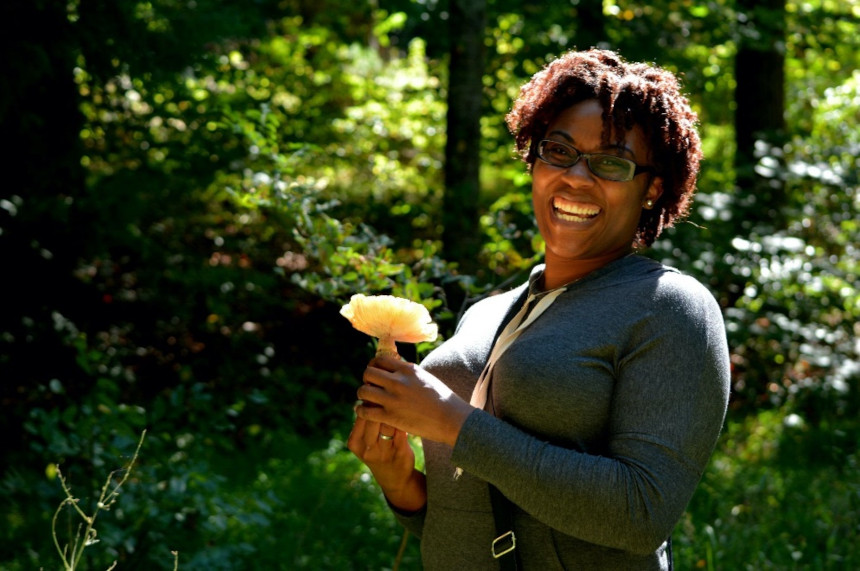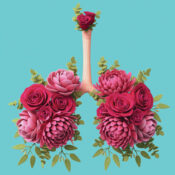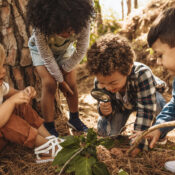Even though we sometimes would not get a thing,
we were happy with the joy the day would bring.
—Stevie Wonder
COVID-19 has taken a huge toll on our collective mental health. As reported last month in The Atlantic,
a staggering 4 in 10 adults have reported symptoms of anxiety and depression, a quadrupling of the pre-pandemic rate. More than 1 in 4 mothers report that the pandemic has had a major impact on their mental health. 24% of parents have reported being diagnosed with a mental-health disorder since the start of the pandemic. Visits to primary care for anxiety and depression have increased 13% among kids… Even when people really mean to exercise and eat healthy foods, burnout—a state of low energy and low motivation—is a common barrier to realizing those good intentions.
In the wake of such devastation, how can we muster the motivation to nourish ourselves and keep moving? What if there were a fun, free, easy way to do both?
In this time of massive disruption, people need solace. We need a way to ground. Several pandemic-era studies have shown the mental health benefits of time spent in nature (see here, here, and here). And the original #1 outdoor recreation activity is foraging: gathering wild food.
As Helen Keating of the Woodland Trust told South West Londoner, foraging is a way to “not just to be in nature, but to genuinely connect with it.” Foraging can be particularly helpful for people of color and other underserved communities. It gives families a fun way to spend time together, enjoying fresh air, sunshine, exercise, nature connection, and free, wholesome food.
Most of us resist exercising, indoors or out, for good reason: it’s unnatural. We are built to forage. It’s the original Easter egg hunt. And the miracle of foraging for parents is that children with no interest in greens, mushrooms, and other healthy foods suddenly become VERY interested when they find and harvest them themselves.
The joys and benefits of foraging are inherent to hunting and gathering because feeding ourselves from nature is what we’re designed for. Contrary to popular belief, foraging can be safe, easy, and beneficial to the environment. It’s what we evolved to do. I teach foraging, and I like to say that even if you put nothing in your basket, you are still fed.
The homepage of Visit Finland, the country’s official tourism website, opens with “Finland has been chosen as the happiest nation in the world for three years in a row. Being happy has a lot to do with our daily habits: a short walk in the forest, going ice swimming or tasting something fresh from nature. All of these things add a sense of calm and happiness to everyday life – something we all need right now!”
Finland’s happiness is not accidental. In 1969, the country launched a 15-year campaign to teach foraging. By 1983, 50,000 citizens had been trained. Today, roughly half the population forages regularly — without harming the forest. Many sell their harvest locally and as far away as Italy.
It is a sad irony that while the American poor are often loath to stoop so low as to “scavenge,” the rich frequently can’t wait to do it. My city’s marketing campaigns, aimed at upscale tourists, often feature foraging. The restaurant four times voted #1 in the world centers around foraging.
Since the pandemic, there has been an explosion in visits to national parks. Camping is up 337 percent. Interest in foraging is up 25-500 percent (see also here and here). Enrollment in my company’s wild food tours has increased by over 40 percent.
Black, Indigenous, and people of color, however — and particularly Black people — face a number of barriers to outdoor recreation, particularly foraging. For one, there’s fear of the woods, the place where lynchings happen. Foraging, however, need not involve camping or even hiking. There is more wild food in the city than in the country. Foraging can literally be a walk in the park.
Still, when you have bills to pay, taking time out can be a challenge. Foraging provides an “excuse” to do so. With foraging, you can save money on groceries and even make a few dollars selling your finds. Children, the world’s best foragers, can make more money than their parents!
Foraging is a basic skill. Teaching it combats hunger, malnutrition, obesity, nature deficit disorder, and more. Commercial foraging can even combat poverty. It all starts with nature connection. And like David Hamilton, author of Family Foraging, puts it, “you can’t get much more connected to the land than eating from it.”
There is something uniquely comforting about foraging. Moving at the speed of nature, you find you are not in such a hurry. Foraging requires slowing down, noticing, and being present. It is a mindfulness practice, something often prescribed for stress. Many people won’t go to a meditation class, but they will go for a walk in nature, especially on a scavenger hunt for tasty food.
Foraging is a treasure hunt, but the real treasure isn’t something you can put in your pocket or your mouth. In this time of insecurity, foraging provides something much more valuable than food. It gives us the feeling of being provided for, of being surrounded by a benevolent, supportive world.
Foraging is a homecoming. It brings us back to where we belong. We are all entitled to experience the peace that nature provides. It is our birthright. Foraging uncovers the real Garden of Eden, and it has been here all along.
To learn more about foraging, don’t just buy a book; find a real field guide: one with two legs. For a list of organizations working to “diversify the outdoors,” see here.
Alan Muskat is the founding CEO of Asheville-based No Taste Like Home, a 26-year-old foraging education company.
Featured image: A participant holds an edible honey mushroom on a foraging tour in Asheville with No Taste Like Home (photo by Makyziah Thames for No Taste Like Home)
Become a Saturday Evening Post member and enjoy unlimited access. Subscribe now




Comments
In these unprecedented challenging times, it’s more important than ever to connect with nature each day for greater control and balance over our mental and emotional health.